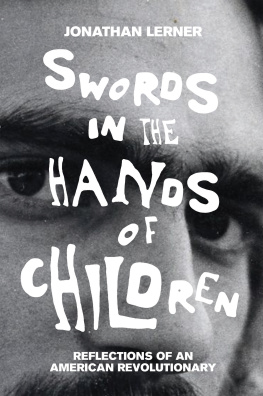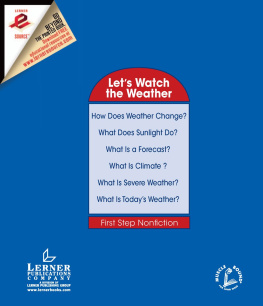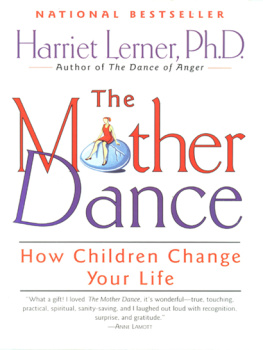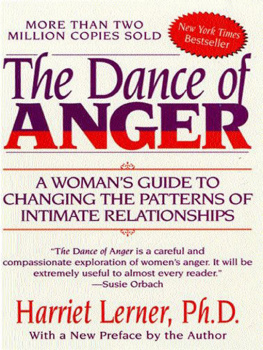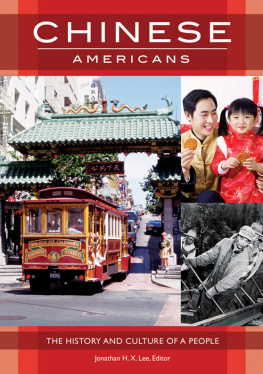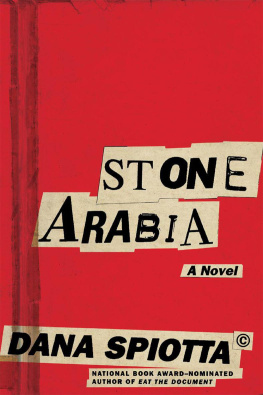


2017 Jonathan Lerner
Published for the book trade by OR Books in partnership with Counterpoint Press.
Distributed to the trade by Publishers Group West.
All rights information: rights@orbooks.com
All rights reserved. No part of this book may be reproduced or transmitted in any form or by any means, electronic or mechanical, including photocopy, recording, or any information storage retrieval system, without permission in writing from the publisher, except brief passages for review purposes.
First printing 2017
Cataloging-in-Publication data is available from the Library of Congress.
A catalog record for this book is available from the British Library.
ISBN 978-1-944869-47-2
Text design by Under|Over. Typeset by AarkMany Media, Chennai, India.
10 9 8 7 6 5 4 3 2 1
A July afternoon at the Chesapeake shore. My husband Peters family has gathered to celebrate his mothers eighty-fifth birthday. The day is sticky and still, though theres thunder in the distance. We cant swim in the bay because its alive with stinging jellyfish. Everybody else has taken refuge in the air-conditioned house. I cannonball into the pool, smashing its glassy surface. Im no diver, and not much of a swimmer. Water explodes around me, slops onto the hot concrete decking, in displacement. For every action, there is an equal and opposite reaction. My bodys weight, or mass, or velocity, or all threeIm not much at physics, eitherprovoked this agitation. What was tranquil is roiled. I climb out dripping. The ripples die back. Out on the bay now, beyond the sandbar that protects this inlet, I see that a wind has begun kicking up whitecaps.
It has been a turbulent July altogether, this July of 2016. New storms keep whirling me back half a century. I thought I had long since finished brooding over what I did then, and the choices I made, when I called myself a revolutionary. But events of today are forcing me to probe that history one more time. These torments keep coming, like electrical discharges from an angry atmosphere. Yesterday, Miami: a black therapist, trying to manage his autistic patient, shot by police while lying on his back, hands up in surrender. Today, Munich: nine shoppers at a mall; this shooter evidently lacked ideology and was simply crazy, though its been hard to tell the difference in the recent massacres that inspired him. In Somerville, Massachusetts, the police union demands that a #BlackLivesMatter banner be removed from City Hall; they are reacting to the fact that black snipers have picked off cops in Dallas and Baton Rouge, in retaliation for cops killing black men in Baton Rouge and Minnesota.
Have you lost track of these particular instances of reverberation, cause and effect, among the many deadly interrelated events before and since? No matter. Memory is selective and unreliable. But heres what Im saying: The Third Law of Motion doesnt apply. Provocations, outrages, postures, slogans, marches, sticks and stones, mass arrests, legally carried assault rifles, deaths, murders. Onward and upward. This chain of actions and reactions, which are oppositional but rarely equal, does not bring things into balance. Tit for tat is perhaps the law in physics, but not, it appears, among human beings. These actions and reactions do not settle back into equipoise, like the surface of the pool, or to any kind of poise. Instead we have backlash and repercussion. Unintended consequences and deliberate consequences. Inflammation and escalation. I am frightened of escalation. I remember how it seduces and blinds. I remember how to incite it. I remember that I once believed there was nothing left for us to do but make things worse. On purpose.
I am sixty-eight this year. I was twenty in 1968, a year of such cascading disaster that it felt to many people, including me, that there could be no rescuing the broken promises of American democracy. That was the bloodiest year of the Vietnam War, a year when more than 43,000 American and allied (South Vietnamese, Thai, Korean, Australian, and New Zealand) soldiers died, along with an estimated 180,000 of their Viet Cong and North Vietnamese enemy combatants, plus uncountable thousands of civilians. It was the year when the police first beat demonstrating American college students bloody on their campuses, and first shot demonstrating American college students deadblack students, they were, in South Carolina. Martin Luther King, Jr., was assassinated, and the angrier voices of black separatism and militance were now eclipsing his non-violent and moral approach to redressing racial inequality. Robert Kennedy, who as president might have tried to end the war, was also murdered; the Democratic mayor of Chicago set his police loose on antiwar demonstrators at the partys convention; and the Democrats lost the election to Richard Nixon, whose racist campaign for states rights and law and order prompted a political realignment and polarization that still cripples the country today.
1968 is often considered the pivotal year of the Sixties, the Sixties being shorthand here for that eras radical political and cultural upheavals. I use it in this sense to encompass the civil rights movement, the antiwar movement, the Native American sovereignty movement, student power, black power, Chicano power, farmworkers rights, womens liberation, gay liberation, the back-to-the-land and environmental movementsthe multiple upwellings in the United States that arose against a global backdrop of anti-colonial and leftist uprising. The Sixties brought forth real and precious changes, however imperfect and incomplete, openings and shifts in consciousness and culture as well as in law. Among these were also efforts and organizations devoted to militance and to revolution. These too bore fruits, but mostly stunted and rotten fruits, as I know from having tilled that poisoned garden myself.
But the Sixties in this sense was not an exact decade. My own Sixtiesmy total immersion in activismbegan roughly in 1967, when I dropped out of college and joined the staff of Students for a Democratic Society, a big, chaotic but fecund, broadly leftist but relatively welcoming and sometimes even effective mass organization. And for me the pivotal year was not 1968, but 1969. That was when I helped destroy SDS, and from the debris helped found a tiny, secretive, intellectually stultifying, corrupt, and violent revolutionary group called the Weathermen. Soon after its formation, the group became a clandestine organization restyled the Weather Underground. My Sixtiesmy immersion in the Weathermencontinued until 1976 when the underground began breaking apart. That was a decade, more or less, though one out of sync with the calendar. I was out of sync with a lot in those years, despite, or I should say because of, being in the middle of so much radical furor.
I hadnt set out to tear things apart. My original impulse had been innocent and idealistic. I wanted to humanize the world. My first political act was much earlier, in the summer of 1961, when I was thirteen. I joined a picket line, part of a campaign to desegregate McLean Gardens, an apartment complex in Washington, D.C. This was only a couple of miles from where my family lived in Chevy Chase. I put on a clean shirt and took the bus alone down Wisconsin Avenue, as I had done scores of times before, and hopped off there.
Next page
